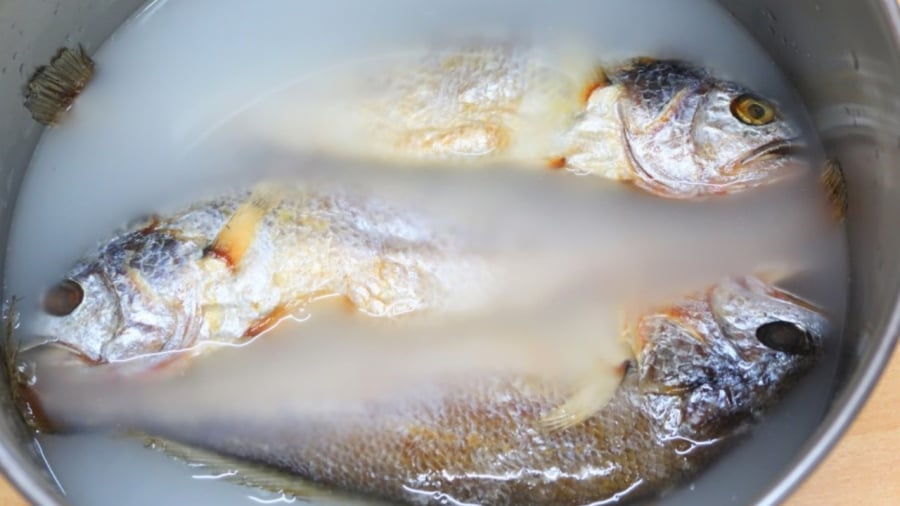How to Get Rid of Fishy Smells
When you buy fish, it’s important to clean it thoroughly before cooking. This includes gutting, removing the gills, trimming the fins, and scaling the fish. Additionally, don’t forget to scrape away the dark membrane inside the belly, as it can also contribute to the fishy smell.
For fish like snakehead, carp, and mackerel, make a small incision below the gills and remove the white thread-like substance. This simple step will help reduce the fishy odor.
If you’re dealing with slippery freshwater fish like catfish, eel, or basa, try rubbing them with ash. The ash will absorb the slime and clean the fish effectively. Alternatively, you can use warm water and a knife to scrape away the slime. This method ensures the removal of mucus and neutralizes the fishy smell.
Soaking Fish to Remove Odor
– Tea Soak
Soaking fish in tea is an effective way to reduce its fishy smell. Use either dried or fresh tea leaves to soak the fish for about 7-10 minutes. Afterward, rinse the fish thoroughly to remove any remaining slime and blood.
When cooking the fish, you can also add some tea leaves to the pot to further neutralize the odor.
– Rice Water
Rice water has been used for ages to clean fish. The starch and other components in the water help remove slime and other impurities. Simply soak the fish in rice water and then rinse it off.

Using rice water to soak the fish helps eliminate the fishy odor.
– Diluted Salt Water
Diluted salt water is ideal for rinsing fish, especially seafood and frozen fish. During the freezing process, if not done properly, the amino acids in the fish can break down and cause a fishy smell. Soaking the fish in salt water helps neutralize this odor.
Make sure to remove any blood clots and the dark membrane inside the belly before soaking the fish in salt water for about 5 minutes. Afterward, rinse the fish with clean water and let it dry before cooking.
– Lemon and Salt
A common method to remove odors from food is to use lemon and salt. Rub the fish with lemon and salt crystals to eliminate impurities and neutralize the fishy smell. Then, rinse the fish with clean water. Vinegar can be used as a substitute for lemon.
– Alcohol and Ginger
Crush and mince ginger, then soak it in white alcohol or cooking wine. You can either use this mixture to directly rub the fish or dilute it with water and soak the fish for 5-10 minutes. Alcohol and ginger effectively remove slime and neutralize the fishy smell.
The Secret to Delicious, Non-Fishy Flavour
The pungent odor of fish can ruin your culinary creations, and while lemon and vinegar can neutralize the fishy smell, they may alter the taste of the fish. Soaking it in rice water tends to make the fish mushy. However, there’s a surprising hero in your kitchen that can save the day – toothpaste! Yes, a simple squeeze of toothpaste can work wonders in eliminating the fishy odor, leaving you with a fresh-tasting dish.





































